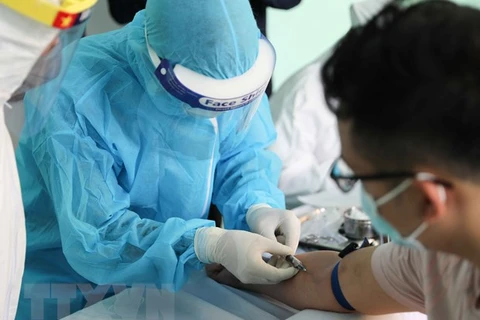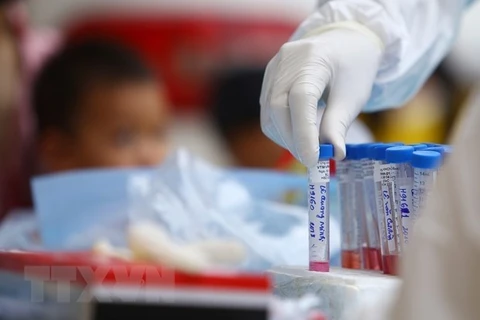Hanoi (VNA) – No new COVID-19 cases were recorded overnight, making the tally stay unchanged at 1068, the National Steering Committee for COVID-19 Prevention and Control said on September 22 morning.
As of 6am on September 22, Vietnam had 691 domestically-transmitted cases, including 551 reported since July 25.
To date, 947 patients have been treated successfully and there have also been 35 deaths linked with the coronavirus SARS-CoV-2, mostly elderly people with serious underlying health conditions.
Among 121 active patients, 15 have tested negative for the virus SARS-CoV-2 that causes COVID-19 once, two others twice, and 19 thrice.
Currently, there are 23,725 people having close contact with confirmed cases or coming from pandemic-hit regions under quarantine.
According to the steering committee, at present, COVID-19 outbreaks in Vietnam are basically put under control, but there remains a risk of infection in major urban areas if locals are subjective in disease prevention and control.
People nationwide are advised to continue wearing face masks, wash their hands regularly, keep distance with others, avoid crowed gatherings and make health declarations./.
VNA
























